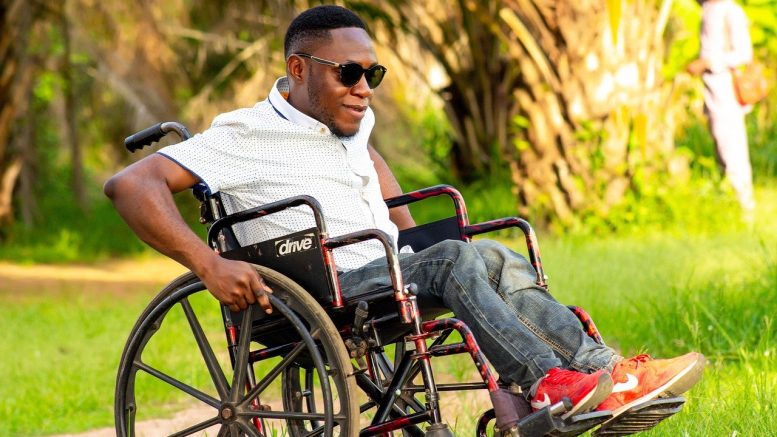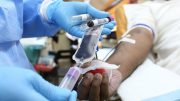Recently, the U.S. Food and Drug Administration authorized marketing of a new device indicated for use in patients 18 and older undergoing stroke rehabilitation to facilitate muscle re-education and for maintaining or increasing range of motion called “IpsiHand System”. The Neurolutions IpsiHand Upper Extremity Rehabilitation System is a Brain-Computer-Interface (BCI) device that assists in rehabilitation for stroke patients with upper extremity—or hand, wrist and arm—disability.
“Thousands of stroke survivors require rehabilitation each year. Today’s authorization offers certain chronic stroke patients undergoing stroke rehabilitation an additional treatment option to help them move their hands and arms again and fills an unmet need for patients who may not have access to home-based stroke rehabilitation technologies,” said Christopher M. Loftus, M.D., acting director of the Office of Neurological and Physical Medicine Devices in the FDA’s Center for Devices and Radiological Health.
Stroke US Statistics
A stroke occurs when normal blood flow to the brain is interrupted. Brain cells obtain oxygen and nutrients from regular blood circulation, so when there is a blockage of blood flow to the brain caused by a clot (an ischemic stroke) or excessive bleeding in the brain due to a ruptured blood vessel (a hemorrhagic stroke), the brain cells can die from a lack of blood and oxygen.
Although stroke is a brain disease, it can affect the entire body and sometimes causes long-term disability such as complete paralysis of one side of the body (hemiplegia) or one-sided weakness (hemiparesis) of the body. Stroke survivors may have problems with the simplest of daily activities, including speaking, walking, dressing, eating and using the bathroom.
- In 2018, 1 in every 6 deaths from cardiovascular disease was due to stroke.
- Someone in the United States has a stroke every 40 seconds. Every 4 minutes, someone dies of stroke.
- Every year, more than 795,000 people in the United States have a stroke. About 610,000 of these are first or new strokes.2
- About 185,000 strokes—nearly 1 of 4—are in people who have had a previous stroke.
- About 87% of all strokes are ischemic strokes, in which blood flow to the brain is blocked.
- Stroke-related costs in the United States came to nearly $46 billion between 2014 and 2015. This total includes the cost of health care services, medicines to treat stroke, and missed days of work.
- Stroke is a leading cause of serious long-term disability. Stroke reduces mobility in more than half of stroke survivors age 65 and over.
If you think someone may be having a stroke, act F.A.S.T. and do the following simple test:
- F—Face: Ask the person to smile. Does one side of the face droop?
- A—Arms: Ask the person to raise both arms. Does one arm drift downward?
- S—Speech: Ask the person to repeat a simple phrase. Is the speech slurred or strange?
- T—Time: If you see any of these signs, call 9-1-1 right away.
Note the time when any symptoms first appear. This information helps health care providers determine the best treatment for each person. Do not drive to the hospital or let someone else drive you. Call an ambulance so that medical personnel can begin life-saving treatment on the way to the emergency room.
IpsiHand System
The FDA assessed the safety and effectiveness of the IpsiHand System device through clinical data submitted by the company, including an unblinded study of 40 patients over a 12-week trial. All participants demonstrated motor function improvement with the device over the trial. Adverse events reported included minor fatigue and discomfort and temporary skin redness.
The IpsiHand System device was granted Breakthrough Device designation, which is a process designed to expedite the development and review of devices that may provide for more effective treatment or diagnosis of life-threatening or irreversibly debilitating diseases or conditions.
“The FDA reviewed the IpsiHand System device through the De Novo premarket review pathway, a regulatory pathway for low- to moderate-risk devices of a new type. Along with this authorization, the FDA is establishing special controls for devices of this type, including requirements related to labeling and performance testing. When met, the special controls, along with general controls, provide reasonable assurance of safety and effectiveness for devices of this type.
This action creates a new regulatory classification, which means that subsequent devices of the same type with the same intended use may go through the FDA’s 510(k) premarket process, whereby devices can obtain clearance by demonstrating substantial equivalence to a predicate device,” – The FDA said.





Be the first to comment on "FDA Authorizes Marketing of IpsiHand System"